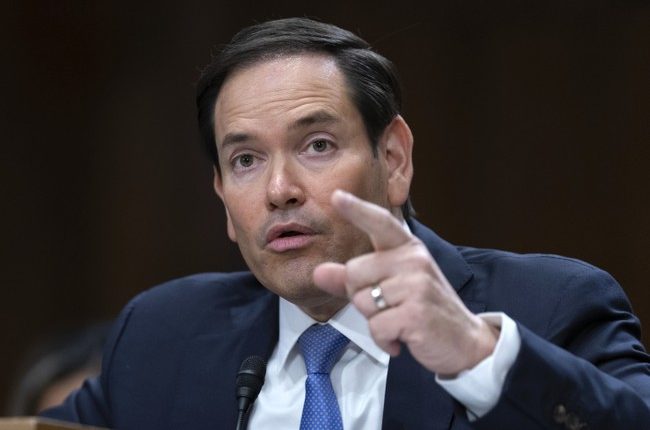
To quote Yogi Berra: It ain’t over until it’s over. Harvard may learn that the hard way.
Two months ago, Harvard won some relief in court over its participation in the Student Exchange and Visa Program (SEVP) after the Department of Homeland Security suspended its certification. That matter is before the First Circuit Court of Appeals, located in Harvard’s home turf of Boston, and will likely require the Supreme Court to settle matters. In the meantime, Harvard can continue its lucrative foreign-student recruitment program, at least theoretically.
But as I wrote at the time, there is more than one way to defur this particular feline:
At any rate, I suspect that this will be mooted at some point by other developments, most immediately at the State Department regarding student visas. Marco Rubio has much more plenary authority to restrict student visas in a more comprehensive way, as well as to look for nat-sec issues regarding specific countries on the front end rather than the universities they feed on the back end.
And that shoe has dropped today. The State Department has launched an investigation into Harvard’s compliance with the SEVP program and what use they make of it, and that will be much harder to fight in court:
Secretary of State State Marco Rubio announced Wednesday that the State Department is opening an investigation into Harvard University’s compliance with the government-run visa program for international students.
Rubio said in a statement that all sponsors of the program “must comply with all regulations, including conducting their programs in a manner that does not undermine the foreign policy objectives or compromise the national security interests of the United States.”
“The American people have the right to expect their universities to uphold national security, comply with the law, and provide safe environments for all students,” Rubio said. “The investigation will ensure that State Department programs do not run contrary to our nation’s interests.”
Emphasis mine. Let’s remember how we got here. Harvard and other Ivy League institutions — as well as other colleges and universities, such as UCLA — allowed their foreign students to conduct intimidation campaigns aimed at Jewish students and faculty, sometimes to the point of assault and battery. That specifically took place at Harvard, and rather than punish those identified as the perpetrators in those incidents, Harvard rewarded them.
It became clear nearly immediately that the foreign students were only part of the problem. The funding that these universities receive from places like Qatar and other sources linked to Hamas specifically and other malevolent movements and regimes are also part of the problem, and provide funding for these students. The worst may actually be students and money from China, but that has more to do with national-security risks than radicals rioting on campuses and attempting to drive Jews out of higher education.
Rubio’s statement suggests that he wants to take a systemic look at the entire SEVP program as well as the effects that the influx of massive cash from unfriendly regimes has on education in the US from a nat-sec perspective. That will be much more difficult to challenge, since the State Department operates at the apex of presidential authority in the Constitution in the foreign-policy arena, rather than DHS, which operates as a hybrid between the executive and legislative branches. The State Department can get ahead of the SEVP program by simply refusing student visa applications entirely from certain countries.
Harvard can still sue, but it might have to file that suit in the DC circuit rather than in Boston, since Rubio’s actions will likely expand past Harvard itself. Even if they can keep their home-field advantage, it may not matter; the court will have less authority to challenge Rubio while he’s operating on national-security and foreign-policy concerns.
All of this should remind Harvard that it can resolve this fight by refraining from selling out its American students in order to pander to radical foreigners and the hostile money interests behind them. At the very least, it can stop rewarding radicals who launch intimidation campaigns and assault students for their ethnicity and religion on their campuses and ensure a safe environment for everyone.
The fact that Harvard prefers to go to court rather than solve their problems is just a reminder that they are who we think they are. And not just at Harvard, either.
Editor’s Note: Every single day, here at Hot Air, we will stand up and FIGHT, FIGHT, FIGHT against the radical left and deliver the conservative reporting our readers deserve.
Help us continue to tell the truth about the Trump administration and its successes. Join Hot Air VIP and use promo code FIGHT to get 60% off your membership.








